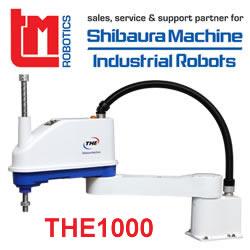NASA, NIA ANNOUNCE 2013 RASC-AL ROBO-OPS COMPETITION
NASA and the National Institute of Aerospace (NIA) announce the 2013 RASC-AL (Revolutionary Aerospace Systems Concepts-Academic Linkage) Exploration Robo-Ops competition. As NASA continues to explore the solar system, robots are increasingly needed to work in tandem with humans.
NASA and the National Institute of Aerospace (NIA) announce the 2013 RASC-AL (Revolutionary Aerospace Systems Concepts-Academic Linkage) Exploration Robo-Ops competition. As NASA continues to explore the solar system, robots are increasingly needed to work in tandem with humans. Serving as surrogate explorers, they have the capability to reach new worlds, explore unique extraterrestrial terrains and atmospheres, and conduct tasks too dangerous or precise for humans. Understanding the need to cultivate the next generation of scientists and engineers, the Robo-Ops competition provides undergraduate and graduate teams the opportunity to develop novel, or expand on existing, technologies for use on interplanetary rovers. It also allows teams to employ innovative concepts for participatory exploration.
Testing of the rovers is conducted in June, during a competition in Houston, Texas at the NASA Johnson Space Center (JSC). There, each team's rover will compete at JSC's Rock Yard, an environment that simulates various planetary terrains, where the rovers must demonstrate their capabilities to traverse upslopes and downslopes, deep sand, craters, and a rock field - all while collecting rocks of differing point values.
Up to three members of each team, and their faculty advisor, will be allowed to attend the on-site portion of the competition in Houston. The remaining members will stay behind at the team's home university campus to conduct "mission control" tasks. During the competition, communication between team members will be embargoed to replicate how robots and astronauts will work together in the near future on human space exploration missions. The rovers will transmit real-time video feeds from their on-board cameras back to the home universities' mission control centers where the rovers will be operated remotely, based on the limited data of the on-board camera and sensors.
NASA, seeking to engage the public in its missions and research, will require each of the selected teams to develop and execute participatory exploration activities. Teams will conduct physical person-to-person outreach, develop an outreach video about their rover, and employ social media and websites to "bring the public along" through the development of their rover.
Teams will be assessed based on a submitted written final report, their participatory exploration activities, and their rover's ability to perform in the JSC Rock Yard. Winning teams will receive cash prizes.
Robo-Ops is sponsored by NASA and administered by the National Institute of Aerospace.
Featured Product

